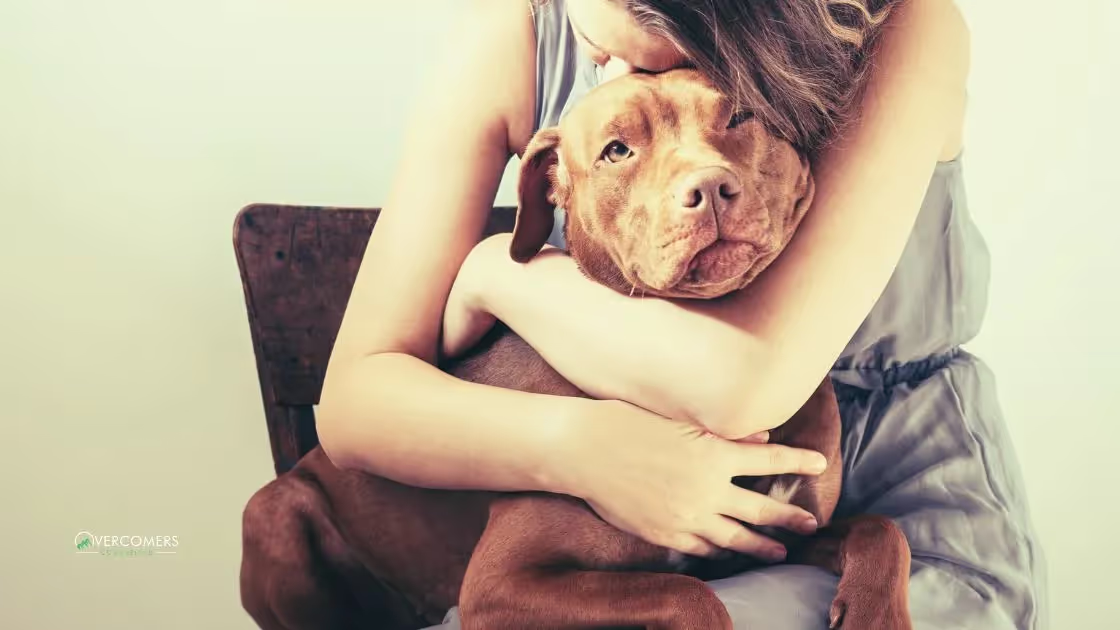Pets are very important beings in the lives of people.Years of memories, love, and bonding are shared with our pets.So deep is the bond between some pets...

Pets are very important beings in the lives of people.
Years of memories, love, and bonding are shared with our pets.
So deep is the bond between some pets and their owners that their owners have described the pets as soulmates.
The deep bonds we shared with our pets make their death a painful event.
The normal feelings of loss and grief upon such a death can leave a huge hole in our lives.
In order not to sink into an abyss caused by the loss, as a grieving pet owner, you must find ways to deal with the loss of your pet.
Not just in any way, but ones that are healthy and are not self-sabotaging.
A way to deal with the loss of your pet is to try philanthropy by doing various charitable acts like volunteering at shelters or donating to animal causes.
You could create a memorial in any way you want in honor of your pet and you could also try to reach out to family and friends or grief support groups.
More of the healthy ways you could deal with the loss of your pet are:
It's normal for you to be left shaken by the loss of your pet and showing your grief about it should not be discarded as unnecessary.
Lost pets served as companions who provided sparks of joy in the lives of the families they belonged to while alive.
The loss of such a companion will naturally leave much pain which will grow if bottled up and ignored.
It is necessary to express the sadness felt in as healthy a way as possible to properly handle the loss and heal.
The acknowledgment of the loss and the pain it left is the first stage toward proper grieving. It should not be skipped.
Using distractions will only postpone eventual confrontation with our pain.
Do not give in to any external pressure trying to convince you that your grief is over the top for "just a pet".
Best not to give in to such opinions which try to dictate how you should deal with the loss of your pet.
Reaching out to others for emotional support during the grieving of a pet is well advised.
Kind external support can be very healing to people in grief.
The closest people to reach out to are normally close family and friends.
They are likely to support you through such a sad time.
This applies more to family and friends who are also present or former pet owners and can easily relate to your grief.
There are also support groups that provide a safe and wholesome environment to cater to the healing needs of pet owners who are trying to go through the feelings of pain and loss accompanying the loss of their pets.
These support groups have unique views and programs developed to help members express their grief and grieve openly with a supportive community.
You can also reach out to professionals for help, especially with severe feelings of grief that are interfering with one's ability to function properly in their daily life.
Social media continues to be the gift of modern times which keeps giving as it provides online communities which help people who are going through loss.
The purpose of a memorial is to celebrate and remember a loved one.
A memorial for a pet can be done in various ways.
You could hold a memorial service or a pet funeral to celebrate a life full of happiness and love lived by your beloved pet.
You could create memorial plaques or frames which contain a pet's picture or something the pet loved or wore.
Personalized items with the pet's face or likeness such as shirts, mugs, handkerchiefs, etc can be made in memory of a lost pet.
A statue could be carved in their honor as a tribute too.
A memorial is not limited to dear to or bearing a likeness of a lost pet.
For example, some people plant trees in memory of their pets.
The goal of a memorial is to remember and celebrate the lives of pets and to help us heal.
This means the sky is the limit.
Even visits to places pets loved to go to as a memorial are valid.

Writing can help draw out feelings, especially raw unfiltered ones which are going through the mind after the loss of your pet.
It is not uncommon to find pet journals written by people when dealing with grief.
There is no proper or improper way to write.
Words do not have to be poetic or formal.
The purpose of writing down your feelings is to help you in your expression of grief, not to produce an entry for a Nobel prize in literature.
Writing is a loose term.
It covers the making of scrapbooks and other types of expressions.
They all serve the same purpose.
Some write letters to lost pets expressing appreciation for the memories and thanking them for all the love.
All valid expressions of grief.
Social media sites and blogs are also platforms for writing feelings of grief down.
These writings have the potential to reach and comfort many others passing through the same experience.
Doing good deeds for others acts as an emotional release of grief for a lot of people.
Things done to heal and in memory of loved pets are all part of the many ways to deal with the loss of your pet.
Volunteering at animal shelters is a great way to go.
Helping bring happiness to the lives of others helps with grief and is a healthy way to cope.
Caution should be taken because some people react differently to being around other animals just fresh off the loss of their pets.
Smelling, feeling the fur of, or hearing the sounds of other animals can trigger painful feelings in some people when they go to volunteer at animal shelters.
Make sure you are alright being around other animals and do not feel guilty if being around them at that period is too much for you to handle.
Donations can also be made to animal charities to honor the loving memory of your pet.
Such donations can be made in your pet's name to create a legacy for them.
Fundraising events can also be done to help out an animal cause as part of acts of philanthropy.
The feeling that we are passing across the love we had for our pets and honoring them while doing charitable acts is quite wholesome.
Emotional pain is hard to deal with. In order not to stagnate due to grief, healthy ways of healing should be explored when you grieve.
You have to first acknowledge our pain before any sort of healing can commence.
You can reach out (to family and friends, grief therapy, grief support groups, and online platforms), prepare a memorial for your pet, write down your feelings or do some philanthropic acts.
https://www.everydayhealth.com/emotional-health/10-ways-heal-after-losing-pet/
https://www.wikihow.com/Cope-After-the-Death-of-a-Pet?amp=1
https://www.humanesociety.org/resources/coping-death-your-pet
https://www.helpguide.org/articles/grief/coping-with-losing-a-pet.htm
The duration of grief counseling varies for each individual, depending on the severity of their grief and their progress in therapy. Our therapists will regularly assess your progress and adjust your treatment plan as needed.
Dealing with someone who is addicted to drugs or alcohol can be difficult. It is important to remember that addiction is a disease, and the addict is not responsible for their behavior. You can offer support and understanding, but it is important to set boundaries. You can also get help for yourself through therapy or counseling.
We offer a variety of specialized services, including individual therapy, group therapy, and various therapeutic approaches such as cognitive-behavioral therapy (CBT) or psychodynamic therapy.
Yes, we provide supportive counseling for family members who are struggling with the loss of a loved one. Our compassionate therapists can help you gain insight into your feelings and provide constructive strategies to cope with the pain of bereavement.
There is no "right" or "wrong" answer when it comes to how long grief will last in the elderly. For some people, the grieving process may last for several months or even years. For others, it may come in waves – they may have periods of intense grief followed by periods of relative calm. It's important to remember that everyone grieves in their own way and at their own pace.
If you find yourself having difficulty managing daily activities due to lingering feelings associated with grief such as sadness, anger, guilt or numbness; then it might be beneficial for you to seek professional help through our Colorado Springs Grief Counseling services. Our therapists are trained in helping clients identify their needs and goals related to grieving.